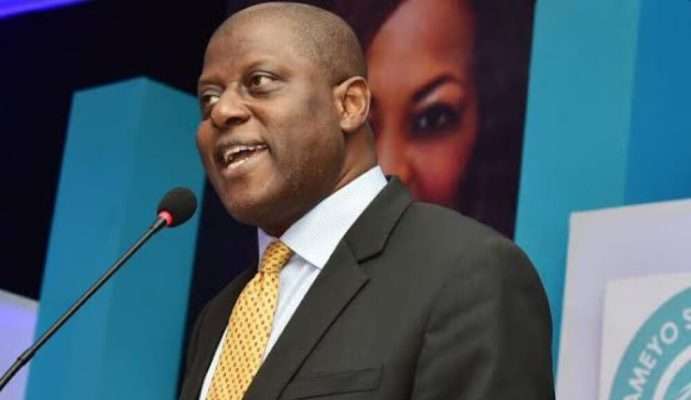Economists Decry Lack of Transparency in Nigeria’s Fresh $2.35bn Borrowing Plan

Story written by Uzuh Rita October 9,2025
Financial analysts and economists have expressed deep concern over the federal government’s rising debt profile and lack of transparency in its new borrowing plans, warning that Nigeria may be heading toward a deeper fiscal crisis.
Economists Prof. Tajudeen Tella and Prof. Akpan Ekpo criticised President Bola Tinubu’s request for National Assembly approval to raise $2.35 billion in external loans to partly fund the 2025 budget and refinance a maturing Eurobond, describing the move as unsustainable and opaque.
Speaking in separate interviews with BusinessDay, Tella faulted the government for excessive dependence on debt, arguing that most loans secured in recent years show little visible impact on key sectors like education and healthcare.
“Money that should be used to fix schools and hospitals is now servicing debt. We don’t even see the effect of the loans,” he said, urging lawmakers not to approve the request without scrutiny.
Tella noted that Nigeria’s debt now exceeds double its foreign reserves, warning that the country’s exposure could worsen if the global economy enters a recession.
“Our debt is over $90 billion, while reserves stand at around $41 billion. If the world economy slows down, we’ll be in serious trouble,” he cautioned.
Echoing similar views, Prof. Akpan Ekpo, a former Director-General of the West African Institute for Financial and Economic Management, accused the Tinubu administration of poor fiscal transparency and contradictory policies.
“The government claims it has met revenue targets but continues to borrow. That’s inconsistent,” he said.
Ekpo argued that the government should explore public-private partnerships (PPP) and build-operate-transfer (BOT) models instead of accumulating more debt.
He questioned the absence of clarity regarding the specific projects the new loans will fund, saying:
“We keep hearing about Sukuk and infrastructure loans, yet most of the supposed 225 projects haven’t even started. What exactly are we funding—capital or recurrent expenditure?”
Both economists warned that indiscriminate borrowing is mortgaging Nigeria’s future, leaving the next generation burdened with unsustainable debt.
“This borrowing spree is reckless,” Ekpo said. “Future generations will curse us for what we’re doing now.”
The professors urged the National Assembly to conduct a thorough review of all loan proposals before approval to ensure accountability and prevent fiscal mismanagement.
Tella added that until the legislature starts rejecting unnecessary loan requests, Nigeria’s debt problem will persist.
“We need a national conversation on debt sustainability. If this continues, we’ll keep mortgaging our future,” he concluded.
According to the President’s letter to the Senate, the government plans to raise funds through Eurobonds, syndicated loans, and borrowings from multilateral institutions to cover the 2025 budget deficit and refinance existing debt.
However, experts insist that without greater transparency, fiscal discipline, and measurable project impact, the government’s borrowing strategy will only worsen Nigeria’s debt crisis.






